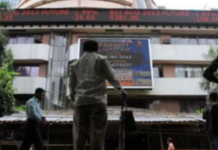Washington– India’s GDP growth during the current fiscal ending March has been estimated by the International Monetary Fund to slow down to 6.6 per cent due to the temporary disruptions caused by the government’s demonetisation drive, the multilateral lender said on Wednesday.
“Growth is projected to slow to 6.6 per cent in FY2016/17, then rebound to 7.2 per cent in FY2017/18, due to temporary disruptions, primarily to private consumption, caused by cash shortages,” the IMF said in its latest annual country report on India.
“A key domestic risk stems from the government’s currency exchange initiative, where the near-term adverse economic impact of accompanying cash shortages remains difficult to gauge, while it may have a positive economic impact in the medium term,” the report said.
The report called for “action to quickly restore the availability of cash to avoid further payment disruptions and encouraged prudent monitoring of the potential side-effects of the initiative on financial stability and growth”.
The IMF also said that a favourable monsoon, low oil prices, continued progress in resolving supply-side bottlenecks and robust consumer confidence will support near-term growth as cash shortages ease.
However, India’s investment recovery is expected to remain modest and uneven across sectors, as corporate de-leveraging takes place and industrial capacity utilisation picks up, the report said.
From the external perspective, it said that despite the reduced imbalances and stronger reserve buffers, the impact from global financial market volatility could be disruptive, including from US monetary policy normalization or weaker-than-expected global growth.
According to IMF, domestic risks also emanate from a potential deterioration of corporate and state-run bank balance sheets, as well as setbacks in the reform process, including in the design and implementation of the proposed Goods and Services Tax (GST)A






